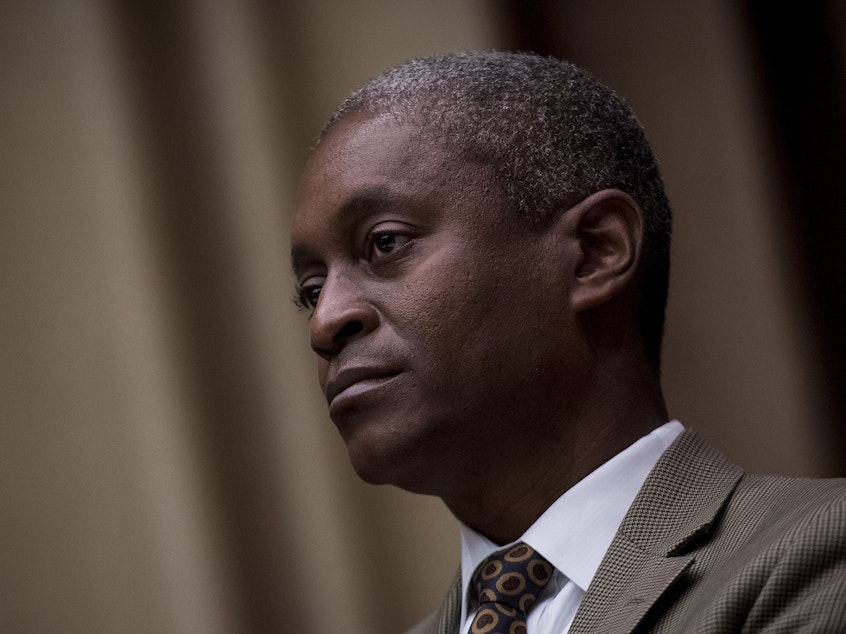Racism Has An Economic Cost, Atlanta Fed President Warns

Raphael Bostic, president and CEO of the Atlanta Federal Reserve Bank, says racism is a danger to the health of America's economy.
In a recent opinion piece, Bostic reflected on the recent protests against police brutality that he says are fueled, in part, by economic inequalities that stem from systemic racism.
"By limiting economic and educational opportunities for a large number of Americans, institutionalized racism constrains this country's economic potential," he wrote. "A commitment to an inclusive society also means a commitment to an inclusive economy."
In order to get there, he tells NPR's Ailsa Chang, tough conversations have to happen that address and raise awareness about racial inequities, as well as the nature of those inequities.
"What I think is going to be really important is that those sorts of conversations continue so that people start to become much more sensitive about when their approaches to decision-making or allocating capital or hiring workers is being shaded by things that are inadvertently, in many instances, disadvantaging African Americans and other minorities," he says.
Sponsored
As the first African American to become president of a Federal Reserve bank, Bostic sees his leadership role as less of a burden and more of a "joy and satisfaction," knowing that his work at a high-level position "is really changing how people think about what's possible."
Here are excerpts from his conversation that aired on All Things Considered:
Home ownership, obviously, is one of the surest ways to gain wealth. What can the Fed do to help disadvantaged communities own their homes?
Well, I'm glad you talked about housing and it really does speak to the point that this is a multidimensional problem. We do have relationships with a lot of banking institutions that provide the financing that families take advantage of to buy homes. So, we've been working with them for a long time, we will continue to do that to try to make sure that they don't have biases in things that they do.
I do want to ask about this rule that the Trump administration is trying to move forward with, and it would basically be a rule that would make it harder to file discrimination cases with the Fair Housing Authority. Even lenders like Bank of America are opposed to this change. What do you think about this rule that the Trump administration is pushing?
Sponsored
It is a problem, and I think it is important that we create real opportunities for those who have been mistreated to find recourse.
I was pleased to see that the banking institutions and some pretty major organizations like the National Association of Realtors all have the same view. And I'm hopeful that even if this rule does go through, that they will continue to manage their business and activities in a way that's consistent with trying to stamp out fair housing violations wherever they occur.
As the first African American to lead a Federal Reserve Bank, did you feel any added pressure to do something different with this job than the people who came before you?
So, I've tried really hard in this role to not focus on that. I have to be the president and CEO of the Federal Reserve Bank of Atlanta first. And I'm an African American president second. But at the same time, I do recognize that, for many, this is something that they never would've imagined.
I've gotten so many emails from people saying, "I never thought that the Fed was a place that an African American could lead. And I'm thinking about my career in a different way."
Sponsored
Vincent Acovino and Peter Granitz produced and edited the audio for this story. [Copyright 2020 NPR]



